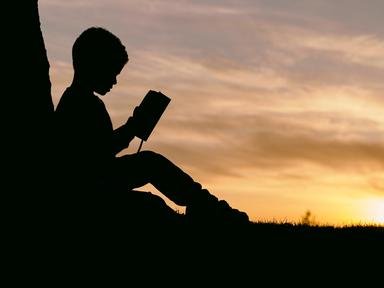Quiz Answer Key and Fun Facts
1. In the poem "Ridiculous Rose", what did the titular Rose do with her toes rather than her fingers?
2. In the poem "Jimmy Jet And His T.V. Set", what change did NOT occur to Jimmy?
3. In the poem named after her, what was the cause of Little Abigail's death?
4. In "A Sister for Sale", how does the narrator describe his sister?
5. What did Deaf Donald say to Talkie Sue?
6. How many eels does Allison Beals have in her titular poem?
7. In which book is 'Dancing in the Rain' found?
8. How far did the garbage reach when Sarah Cynthia Sylvia Stout decided to take the garbage out?
9. In one of Shel Silverstein's poems, a turtle attempted to start a musical relationship. Which instrument was the subject of the turtle's affections?
10. In the poem "Bandaids", on which part of the narrator's body would one find the largest number of band-aids?
11. In the poem "Forgotten Language", what are the forgotten languages mentioned?
12. What happens in 'Sidewalking'?
13. What did little pig want in the poem "LIttle Pig's Treat"?
14. In the poem "The Tongue Sticker-Outer", what did the boy touch with his tongue?
15. Shel Silverstein also wrote songs (music and lyrics) that were performed by him and others. Which song was NOT written by Shel Silverstein?
Source: Author
bernie73
This quiz was reviewed by FunTrivia editor
looney_tunes before going online.
Any errors found in FunTrivia content are routinely corrected through our feedback system.
